Living in the woods, away from the chaos of urban life, and enjoying a self-sufficient and sustainable lifestyle is an exciting prospect for many. But let's be honest, it's not as simple as it seems, and you need the right resources. So, how to live in the woods comfortably? Find a shelter, a proper water source and water purification, a food source, and practice wildlife survival techniques. You also must trust your natural instincts to get away from trouble.
Besides, you need a reliable power source to live independently. Jackery Solar Generators are one of the best out there. They come in several sizes and provide an eco-friendly way to power most of your home and outdoor devices.
How Is It Like to Live in The Woods?
With a soaring cost of living in cities, many are gearing up for the idea of relocating into the woods to abstain from mortgage, rent, and other bill payments. Besides, few just wish to escape from the noise of daily life and enjoy the tranquility of nature. If you're also the one giving it a thought, it's time to ask yourself whether you're ready to move off-grid or not.
Most wood-dwellers cannot see the horizon, so being surrounded by hundreds of trees might make them feel claustrophobic. While many feel protected, it's like living in a cocoon of limbs, leaves, and swaying branches.
That said, nature can be quiet, so good news for those who wish to experience serenity and tranquility. But it's not always like this, as birds can be noisy singers, leaves rustle, and guns crack, especially during deer or bear season, amongst other noises. It's not as noisy as your city, but it isn't dead quiet, either.
Irrespective of where you're living, you must earn a living and pay taxes, so you might need to consider employing yourself in the nearby cities. You might as well want to get supplies from a supermarket, or you can grow your own food in your garden, which many wood-dwellers prefer. But if you're worried about coming in face-to-face with a bear, cougar, or moose, that won't happen. Remember, they're out there, but you will hardly see them mingling in your space.
Why Do People Like to Live in The Woods?
Most of us sense the goodness of walking in the woods, mainly to escape from the daily rush and enjoy the beauty and peace of being in a natural setting. Now, research shows that visiting or even staying in a forest has quantifiable benefits for both your physical and mental health. Not only health, there are many reasons why people like to live in the woods:
Away from Stress and Anxiety: Numerous studies in the US are exploring the health benefits of being in a natural setting, especially forests. Recognizing these benefits, the Japanese Ministry of Agriculture, Forestry and Fisheries in 1982 coined the term "shinrin-yoku," which means immersing oneself in forest ambiance or "forest bathing" to reduce stress hormones in your body and stay healthy.

More Creativity: Irrespective of how hard you try, your creativity is potentially hindered when you live in an urban and modern society. When you engage yourself in scrolling through social media and constantly checking something on your phone, there's no time left to have creative thoughts. Things, however, are polar opposites when you're near nature and away from your daily hustle. Natural environments foster your thinking ability and help you focus better, and you'll see a significant change in how you work.
Leave Expectations Behind: When you live in a city with others, you are bound to have expectations, like spending time or doing something for them. People often drain out trying to fulfill those expectations, so many live in the woods, trying to get away from them and charge themselves by spending some "me time."
Drop Materialism: Being around people who are constantly judging based on your values can be tiring. Often, a lot of negativity is born at an early age from comparing them with others, which is rooted in greed and illusions, exactly how it shouldn't be. Getting away in the woods is always healthy, as it keeps you away from unnecessary comparisons, bolsters your positive thoughts, and you can work your way up in life.
What Are The Challenges or Considerations for Living in The Woods?
Living in the woods, as a whole, can be rewarding, provided you tackle the impending challenges well. Here are a few you might face when you live off-grid in the woods:
Supplies: Amongst many of the struggles involved, obtaining supplies can be tough when living in the woods. You might want to take your car to shop for groceries from a nearby supermarket, but you'll need to drive long (around 10 miles and more) just to get there. Or you have to trek through the wilderness if you prefer to walk. Let alone groceries, and you might have to chop trees on your own for supplies like firewood and even go fishing and hunting for your next meal.
Extreme Weather: Irrespective of where you live, it's crucial to obtain details regarding the weather you can expect every season. In a place where you're surrounded by trees, even a minor disaster can wreak havoc. Besides, the weather in these locales can sometimes get unpredictable, so it's important that you are prepared for that.
Emergency Care: The farther you move away from densely populated areas, the more it takes time for the caregivers to reach you in case of an emergency, be it healthcare, fire, or any other. For healthcare, you get limited options from doctors and specialists, and you might need to travel even miles to procure the prescribed medicines.
Away From the Loved Ones: If you're in constant touch with your loved ones (friends and family), remember that moving to the woods means less interaction with them. You might think that staying away from expectations can be relaxing, but things can get different, and it can impact your mental health over time.
Insects and Animals: The woods are a wonderful and calming place for you, and the same is true for insects and animals that claim them as their home. However, beetles, foxes, squirrels, snakes, beetles, caterpillars, and others can cause trouble.
Considering the challenges, it's important to consider the following before you go on to live in the woods:
- Shelter: You'll need a reliable shelter that is safe from animals and extreme weather and made from appropriate materials like tarps, wood, or branches and leaves.
- Water: You'll need constant access to water, so stay near a source of fresh water. To determine its freshness, look for signs like animal tracks, green foliage, or low-lying areas.
- Food: Alongside water, you'll need a constant food supply, so consider bringing the equipment to collect foods (fruits, vegetables, and fish) from respective sources.
- Safety: Before you live in the woods, you must consider staying safe from hazards like wild animals and dangerous terrain. It's crucial to keep maps, a compass, or a notebook to make sure you won't get lost.
- Warmth: Weather can get chilly, especially at night, so you need means to stay warm and dry, such as a jacket, extra socks, and a sleeping bag.
- Tools: It's recommended not to roam around at night when living in the woods, but you can consider bringing a headlamp or flashlight for emergency purposes. You also must bring a knife or Leatherman for plenty of purposes.
How to Live in The Woods?
Now that you've made up your mind to live in the woods, it's time to understand how to live off the grid in the woods. For that, you must prepare yourself mentally and physically by storing everything you might need during the quest of living outdoors. Here's how:
Think it Through: If you're firm with your decision to live in the woods, maybe it's time to reconsider. Living there is draining, dangerous, and scary. You can end up thirsty at times and even hungry for days, with a constant sense of paranoia. So, if there aren't any other options available, think about relocating.
Form A Plan: Start with deciding where and how you want to live. It means how far you wish to go inside the woods and whether you want basic amenities like electricity and water supply. If the plan is not to access these and live deep inside the woods, plan your utilities; for example, carry a tent if the stay is temporary, or carry tools to cut wood and build your own house.
That's not it. Most areas in the country (rural or urban) are privately owned, and if you want to be legal about it, buy some land or procure seasonal passes obtainable in many states. Also, if you are to live deeper in the woods, look for a community, as staying amongst people who know all about the area can be a good idea.
Prepare Yourself Well: You won't just move into the woods and build a home the next day. It takes time. Till then, get your seasonal camping passes and get on building your house. Besides that, hone your skills in setting traps, hunting and gathering, sharpening knives, recognizing plants, preserving meat, first-aid, fishing, and others to get started. Then, collect the supplies if you go in there for a long term. Here's what you need to get started:
- Multiple tents and blankets
- Heavy boots, gloves, scarves, layers, hats, and long underwear
- A fire steel, flint, and tinder
- Lantern, flashlight, radio, walkie-talkies, extra batteries, whistle
- Medicines, first-aid kit, water purifying tablets
- Items for infants like diapers, diaper bag
- Books, games, activities for children
- Rope, cord, knife, waterproof canisters, and other tools.
- Camping stove
- Dry goods
- Cups, plates, pots, silverware, pans
- Books and other entertainment
- Bear spray and others to ward off dangerous animals
Learn About the Area: If you have the liberty to pick your own place, it's important to know the area well. For example, if you're living beside a water source, ensure there's not much danger lying around, and know what exactly you have at your disposal.
Now that you've prepared yourself, it's time to understand how to live in the woods:
Comfortable Shelter: This is ultimately up to you: do you want to live in a tent or make a house out of the available natural materials like wood, branches, leaves, rocks, etc? If you can't make one of your own, ask a contractor to make it in accordance with your needs, but make sure to stay legal at each step.
Find and Maintain a Water Supply: The most important thing you need after shelter is water, so you must find a reliable and clean source as soon as possible. It's recommended that you further purify it by boiling and filtering it, using purification tablets or a solar purifier before consuming it.
Think About Food: Eating many plants and animals might kill you, so you must study beforehand about ones that are safe to consume. The most basic tip is to avoid mushrooms and eating anything that seems to be dead for a long time. Besides, it's crucial to properly clean and cook the items before you put them in your mouth.
Master Survival Techniques: If you're looking to live in the woods for long, you'll need some serious skills to survive. The important ones include building a fire, purifying water, making traps, fishing, hunting, using first-aid, and preparing a solar oven.
Consider Living Close to an Urban Space: If you aren't confident of surviving deep inside the woods, consider staying close to any urban space. For example, if you need a real toilet, basic utilities, or food, a nearby gas station can be a lifesaver. Or if a mini-town is close, you can quickly go there in case of any health or other emergency.
Power Source: A reliable power source is important to ensure a comfortable stay in the woods, so you can stay in an area where you've access to electricity.
Or, if you want to stay deep inside where there's no supply of electricity, try getting your hands on an off-grid solar system consisting of solar panels and a battery backup attached together to power your electrical appliances. Jackery Solar Generators is one of the best in the space, and it combines portable Jackery Explorer Portable Power Stations and Jackery SolarSaga Solar Panels to generate the needed power. With these, you can expect a constant supply of electricity.
Trust Your Instincts: Lastly, even after preparing so much, things might not go your way. In such dire situations, it's important to trust your instincts and use common sense to escape imminent dangers and troubles. For example, if you suddenly encounter a predator and your instinct tells you to stay still or move slowly, following your instinct might prevent triggering an attack.

Jackery Solar Generators for Living in The Woods
Jackery is a globally renowned manufacturer of solar generators, portable power stations, and solar panels. Jackery Solar Generator packs in Jackery Explorer Portable Power Stations and Jackery SolarSaga Solar Panels, where the latter converts the sun's rays into DC current. The pure sine wave inverter in the former then converts DC into AC electricity, which you can use to power your appliances.
If you've decided to live in the woods, you'll need the right tools to survive and stay comfortable. To start with, a battery backup that powers most of your appliances, like smartphones, TVs, coffee makers, refrigerators, and more. As a rule of thumb, the larger the generator, the more equipment it can power up, and vice versa.
Jackery Solar Generator 3000 Pro
Jackery Solar Generator 3000 Pro, with its large battery capacity, can power most off-grid appliances. Aside from solar power, you can charge it with a wall charger and car battery within a few hours and prepare for multiple hours of backup while living off-grid. Although it's a bit heavy, the pull rods and double wheels make it easy to carry around, and with a unique quiet canyon cooling system, it merely emits 30dB sound during operation.
Appliance Running Time:
- Freezer (200W): 12.8H
- Standard Light Bulb (60W): 42.8H
- Microwave (1300W): 1.9H
- Smartphone (6W): 428.4H
- TV (60W): 42.8H
- Laptop (100W): 25.7H
- Sump Pump (800W): 3.2H

Customer Review
"Purchased to run the fridge and upright freezer if the power goes out. It is to be used at night with no noise or fumes. I can run both for about 22 hours on a full charge. I also ran multiple lights, a sound bar, and a miter saw with plenty of room for more." — T. Wooding.
Jackery Solar Generator 2000 Plus
If you don't want such a high-capacity solar generator, then the Jackery Solar Generator 2000 Plus is worth a try. It features a LiFePO4 battery whose capacity can be expanded by pairing it with Jackery Battery Pack 2000 Plus. Be it living in the woods or power outage, you can use it to power 99% of your appliances. Similar to the previous one, it also operates quietly, and its wheels make it easy to carry around.
Appliance Running Time:
- Freezer (200W): 8.5H
- Standard Light Bulb (60W): 28.3H
- Microwave (1300W): 1.3H
- Smartphone (6W): 283.3H
- TV (60W): 28.3H
- Laptop (100W): 17H
- Sump Pump (800W): 2.1H

Customer Review
The Jackery Solar Generator 2000 Plus powered me through the night with heat and general lighting with power to spare the following morning." — Chris K.
Jackery Solar Generator 2000 Plus Kit (4kWh)
Jackery Solar Generator 2000 Plus Kit (4kWh) comes with Jackery SolarSaga Solar Panels, Jackery Explorer 2000 Plus Portable Power Station, and a battery pack. It powers most of the electric appliances you carry during your off-grid living and comes as a lifesaver during emergency situations. You can ensure maximum comfortability during your outdoor stay with the Jackery Solar Generator 2000 Plus Kit (4kWh).
Appliance Running Time:
- Coffee Maker (550W): 3.1H
- Microwave (1300W): 1.3H
- Electric Oven (800W): 2.16H
- TV (60W): 28.8H
- Laptop (100W): 17.32H

Customer Review
"The 2000 Plus battery pack is an excellent way to expand your storage if you already have one of the Jackery Solar Generators in the 'Plus' line. No frills, easy-to-use connections, and charging times were reported. Built-in handles make carrying simple."- Patrick Walz.
Is It Legal to Live in The Woods in The US?
According to the Code of Federal Regulations: Title 36 Parks, Forests, and Public Property, Chapter II, Part 261, it's illegal to live or camp permanently in a particular site. However, it isn't illegal until you continue to move around, from one forest to another or different areas of the same forest. Most forests and grasslands enforce a 14-day maximum stay per site, which varies from one site to another, so check that before you relocate as well.
If you see a dwelling surrounded by forests, the land probably was a private property before the national forest came into existence. Such a land is called "inholding," and people in their possession are called "inholders." In most cases, these lands were deeded as a part of the Homestead Act of 1862, which was passed by generations or sold to others.
How to Live in The Woods FAQs
What size solar generator do I need to live in the woods?
The actual generator size depends on the number of appliances you use and the number of hours they run. For example, you run a freezer (200W), electric oven (800W), and a laptop (100W) simultaneously on Jackery Solar Generator 3000 Pro.
Working Time = Capacity in Wh × 0.85 / Operating wattage of the appliances
Working Time = 3024Wh × 0.85 / 1100W = 2.34H
Note: Multiplied by 0.85 to indicate some power loss during charging the devices.
How to survive in the woods?
To survive in the woods, you must do the following: 1) Find survival shelters and stay warm, 2) Find water, 3) Find food sources, and 4) Prepare yourself by making basic equipment.
What do I need to live in the woods?
You must carry the following to live in the woods: 1) Compass/map for navigation, 2) Bandana, hat, and sunglasses for sun protection, 3) Extra socks and sunglasses for insulation, 4) Shelter, 5) First aid kit, 6) Fire making tools, 7) Food supplies, 8) Water purification tablets and water bottle.
How long can I live in the woods?
An adult can live more than a few weeks if there's water, the weather isn't very harsh, and few predators.
How hard is it to survive in the woods?
The difficulty of surviving in the woods depends on whether you have access to things to meet your basic needs, such as shelter, water, food, and others.
Safe Guide for Living in Woods
Now that you know everything about how to live in the woods, including the essentials required, you can get ready to embark on a new journey. Investing in an off-grid solar-powered generator like Jackery Solar Generators makes your living thrilling and less stressful. These solutions can charge most of your electrical appliances, and their double wheels and pull rods make them easy to carry around. So, invest in one and get going on with your adventure.

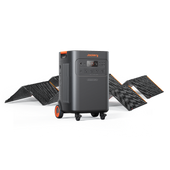











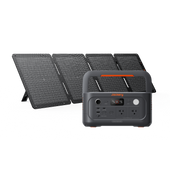



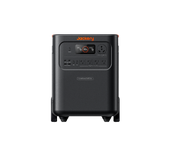
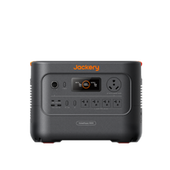





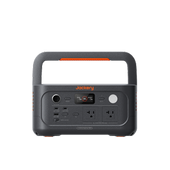





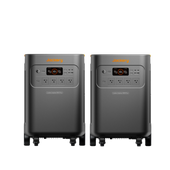
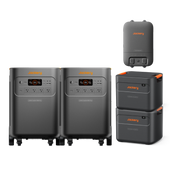





![[Add - on] Jackery Manual Transfer Switch for Explorer 5000 Plus - Jackery](http://www.jackery.com/cdn/shop/files/add-on-jackery-manual-transfer-switch-for-explorer-5000-plus-9017324.png?v=1754016782&width=170)
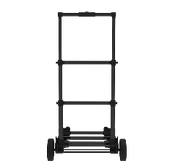
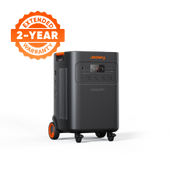
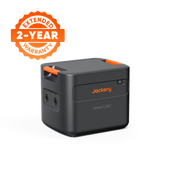
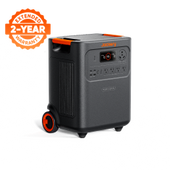





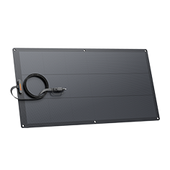
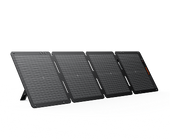

























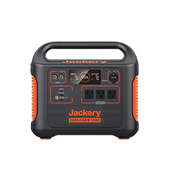






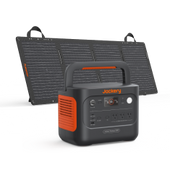
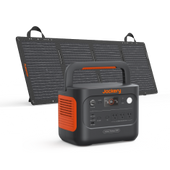






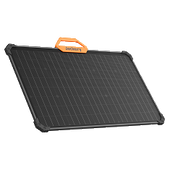


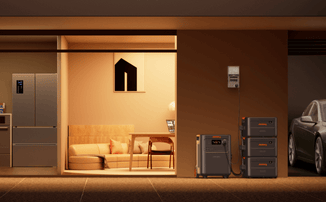














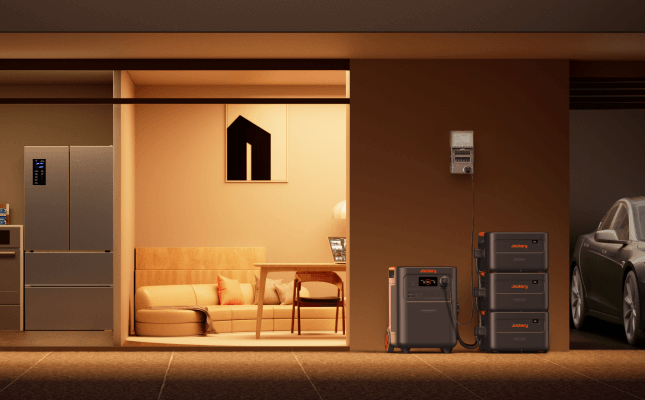


















![How to Live In The Woods [Complete Guide]](http://www.jackery.com/cdn/shop/articles/how-to-live-in-the-woods-complete-guide-8957575.jpg?v=1754018200)







Leave a comment